Resources
Three classroom climates in courses focusing on inequality are identified, those of resistance, paralysis, and rage. In resistant classes, students deny the importance of class, gender, race, and other lines of stratification or fail to see their structural sources. In paralyzed classes, students are so overwhelmed by the pervasiveness of inequality that they become debilitated and depressed; social structures are reified, giving them a false aura of inevitability. In enraged classes, the existence of stratification sparks so much anger that students lash out in an unfocused manner that is often blind to the complexities of stratified societies. In this article, I offer suggestions for responding to each of these three classroom climates.
When I ask myself-Does gender matter in college teaching and learning?-I come up with two mutually contradictory answers. One is, I don't know. The other is yes. Because it's hard to frame an argument around two contradictory propositions, I shall tell you a story instead of presenting an argument. In stories, conflicts and contradictions are allowable and even desirable. The story I'd like to tell is about the ways in which my thinking about gender and teaching and learning has evolved over the years.
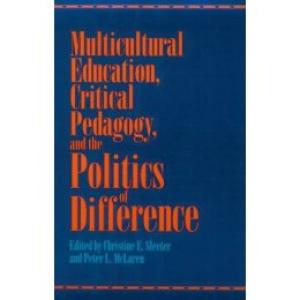
Here is a comprehensive view of leading theories and practices of multicultural education from scholars of various racial and ethnic groups. The perspectives of those often left out of scholarly debate are well represented in this book. Those perspectives offer significant insights into the ways in which dominant ideologies and classroom practices have functioned to serve only one segment of the American population. (From the Publisher)
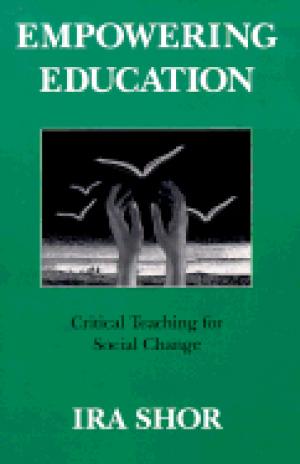
Ira Shor is a pioneer in the field of critical education who ror over twenty years has been experimenting with learning methods. His work creatively adapts the ideas of Brazilian educator Paulo Freire for North American classrooms. In Empowering Education Shor offers a comprehensive theory and practice for critical pedagogy. For Shor, empowering education is a student-centered, critical and democratic pedagogy for studying any subject matter and for self and social change. It takes shape as a dialogue in which teachers and students mutually investigate everyday themes, social issues, and academic knowledge. Through dialogue and problem-posing, students become active agents of their learning. This book shows how students can develop as critical thinkers, inspired learners, skilled workers, and involved citizens. Shor carefully analyzes obstacles to and resources for empowering education, suggesting ways for teachers to transform traditional approaches into critical and democratic ones. He offers many examples and applications for the elementary grades through college and adult education. "One of the most intelligent discussions of the unique function of education in a democratic society since the work of John Dewey. This theoretically compelling and practically useful book addresses the economic, political, and personal needs of students. Shor has emerged as the most reliable discussant of the uses of the work of Paulo Freire in the U.S."--James Berlin, Purdue University Ira Shor, professor of English at the Graduate Center of the City University of New York and the College of Staten Island, is author of Critical Teaching and Everyday Life, and Culture Wars: School and Society in the Conservative Restoration, 1969-1984, both published by the University of Chicago Press. (From the Publisher)
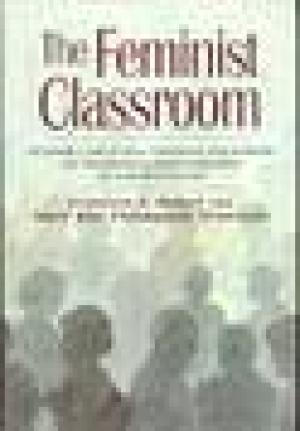
This book provides an intimate view of how feminist teachers are revolutionizing higher education. Drawing on in-depth interviews and on-site observations, and using the actual words of students and teachers, the authors take the reader into the classrooms of seventeen feminist college professors at six colleges and universities - Lewis and Clark College, Wheaton College, the University of Arizona, Towson State University, Spelman College, and San Francisco State University. As these teachers integrate feminist and multicultural content into the curriculum, they demonstrate that pedagogy concerns not only "teaching techniques" but the whole process of the construction of knowledge in classrooms. Learning derives from relationships and interactions among teachers, students, and subject materials, not from any single perspective. In showing how the integration of feminist and multicultural content revitalizes the classroom, the book portrays innovative teaching in action. Feminist and cultural studies scholars have demonstrated that American higher education has traditionally represented the world in terms of the perspectives and achievements of a dominant minority. To educate students for a complex multicultural World, the voices of those who have been excluded need to emerge. There is widespread concern today about the quality of teaching in our colleges, particularly the predominance of lecturing and passive modes of learning. This important book presents a vision of teaching that counteracts the silence and alienation these practices engender. (From the Publisher)
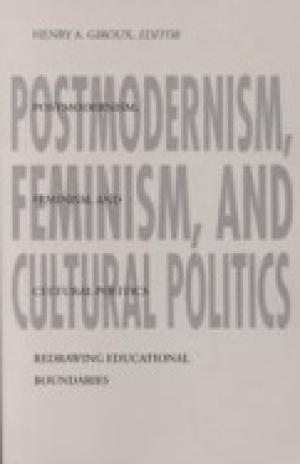

Teachers as Intellectuals is a book for all practitioners and all members of the general community. Giroux demands reader involvement, transformation, and empowerment. He helps understand that the political relationship between schools and society is neither artificial nor neutral nor necessarily negative. Rather, school personnel have a positive and dynamic political role to play. (From the Publisher)

Henry A. Giroux is one of the most respected and well-known critical education scholars, social critics, and astute observers of popular culture in the modern world. For those who follow his considerably influential work in critical pedagogy and social criticism, this first-ever collection of his classic writings, augmented by a new essay, is a must-have volume that reveals his evolution as a scholar. In it, he takes on three major considerations central to pedagogy and schooling. (From the Publisher)
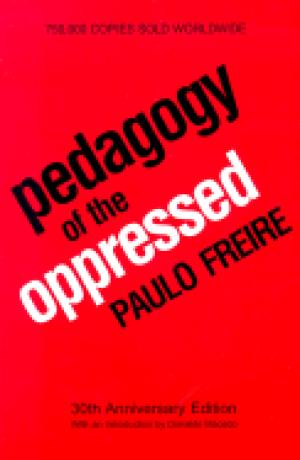
This book is a conversation between Antonio Faundez and Paulo Freire. They discuss their work in the Portugese speaking countries of Africa (Guinea-Bissau, Mazambique, Angola) and their attempts to apply the principles of empowerment through literacy that is their trademark. (From the Publisher)